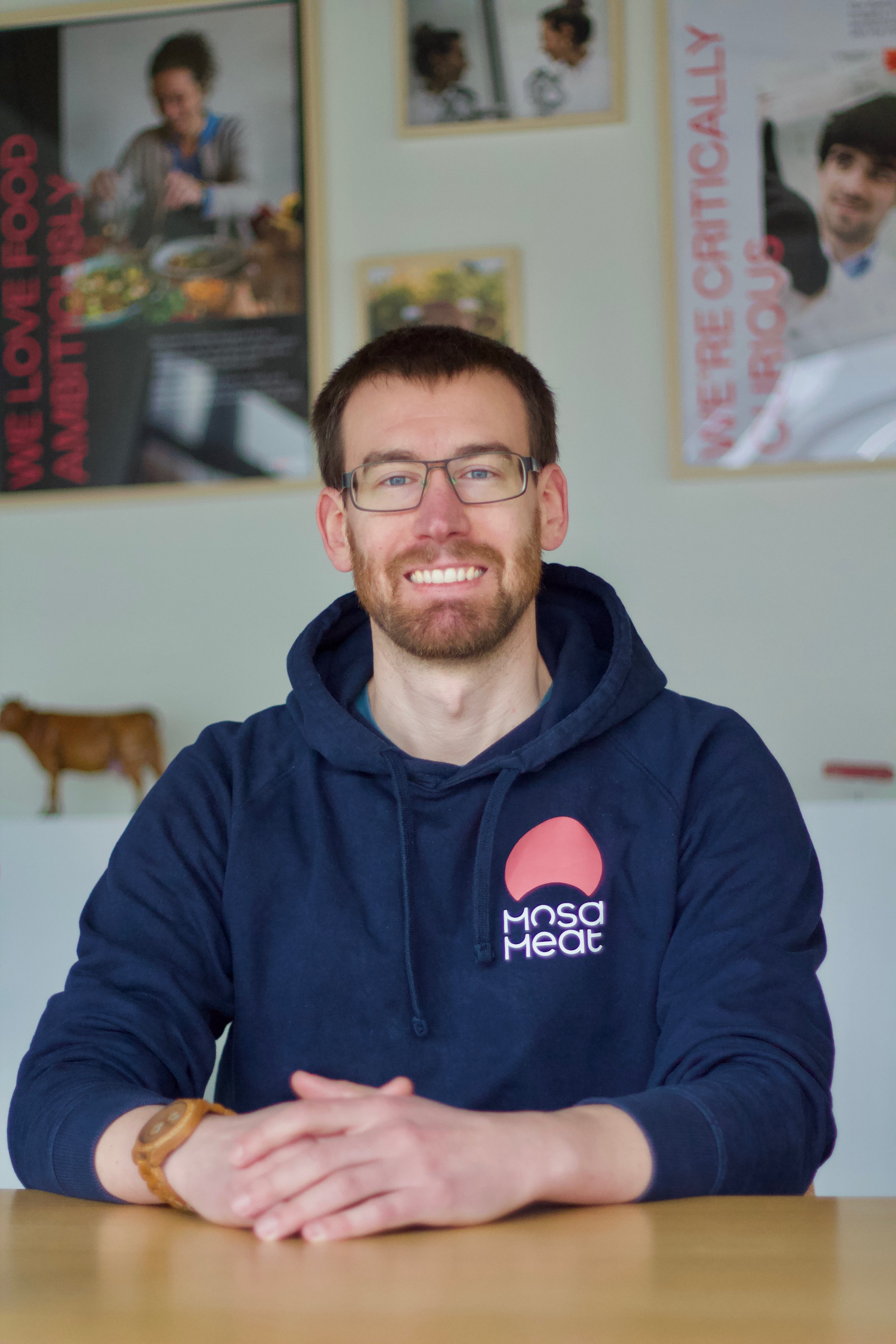Future Farmer: Christoph Börlin, Bioinformatician
In this series we are interviewing our future farmers at Mosa Meat and what inspires them as pioneers of cellular agriculture. Today we spoke with Christoph Börlin, Senior Bioinformatician on the Computing Team at Mosa Meat.
Where did you grow up, Christoph, and what sparked your interest in scientific computing?
I grew up in Mannheim, in southern Germany. I was very interested in science during high school, particularly biology and chemistry, but I also enjoyed working on and with computers. I also spent a lot of my free time during high school rowing, which I did on a competitive level for six years.
After high school, I did a year of civil service in a hospital laboratory analysing gene variants for heart disease patients. That furthered my interest in biology, so I decided to pursue an education linked to biochemistry. I did my Bachelor’s in Molecular Biotechnology at Heidelberg University, where I got interested in the bioinformatics and systems biology research areas, which I then followed up on with my Master’s in Integrated Systems Biology at the University of Luxembourg. My Master’s was a joint double degree programme with the State University of New York at Buffalo, United States. There I worked at the interface of bioinformatics and laboratory work. This is where my interest in bioinformatics and scientific computing in general began.
After that, I wanted to get deeper into bioinformatics and biotechnology, so I ended up in Gothenburg, Sweden at the Chalmers University of Technology for my PhD. My thesis was focused on better understanding how transcription [the process by which a cell makes an RNA copy of a piece of DNA] is regulated in baker’s yeast.
You’re a bioinformatician—can you tell us more about what bioinformatics is, exactly?
Bioinformatics is the use of computational methods to process, analyze and visualize biological data. Nowadays, there is a lot of data produced in biological research, and you are no longer only comparing two numbers but many at the same time. For example, it’s impossible to analyse RNA sequencing data using traditional spreadsheets, because you’re looking at gene expression changes for over 22,000 genes at the same time. You need more advanced methods to understand gene expression patterns in cow cells, which is where bioinformatics comes into play.
Speaking of cows… how did you discover Mosa Meat?
After my PhD, I was looking for jobs in industry, as I felt my work would have a more immediate impact compared to staying in academia. I found the bioinformatics role at Mosa Meat on LinkedIn. It sounded very interesting and a good match for my skill set. I applied, and was lucky to end up here!
Tell us more about your work at Mosa.
The work is very cross-disciplinary and varied. I work with every scientific team at Mosa to analyse our data, help plan experiments, and enable rigorous use of statistics. The projects range from improving cell attachment with the Muscle Tissue Engineering Team to understanding fat cell differentiation with the Fat Tissue Engineering Team.
For example, I work with RNA sequencing data which I then analyse using different tools (Python-based programming, published tools, and in-house developed tools) and help guide our scientists on how to get the most insights from it.
Through gathering and analysing the data, we can better understand and improve our processes. For example, if we better understand what is happening with our cells, we can also understand how to improve differentiation [the step where we mature our cells]. We also need to compare different compounds we add to medium, and this helps us find lower-cost and environmentally-friendly compounds.
Another major part of my work is building tools that make data accessible for the scientists so they can analyse it themselves. We have developed many tools in-house to support our scientists in analysing the data from their experiments.
What motivates you to work here?
I love my colleagues and our shared mission. We’re working together to achieve the important goal of bringing cultured meat to market. I am especially concerned about the climate impact of traditional meat production and I believe that my work at Mosa Meat will play a role in mitigating that.
Crave change? Sign up to our newsletter for the latest Mosa Meat updates straight to your inbox.

